We asked members of the BuzzFeed Community to tell us the things they wished they'd known about mental health going into university. Here's what they said:
01. It's common to struggle with mental health at Uni, even if you never have before. "As someone who had never experienced mental health in my life, it was such a shock when I suddenly had depression. I wish I’d known how likely it was to happen. The sheer amount of people it affects while at Uni is insane. I wish I was more aware of it prior to it hitting me with full force." –billieh4c2f03c05
02. Uni is a chance to get to know yourself better, and that includes getting familiar with the state of your mental health. "For me, Uni was the time when I discovered what was really going on with me. My friend took me to see the student support team, and it allowed me to open up about everything, to go on to be referred to specialists, get a diagnosis and finally get help. I'm not 100%, and never will be, but it was relieving knowing that I had support and that I could begin to understand myself in a safe way, even during those stressful years." –Anonymous

03. Know the signs of depression and other mental illnesses. "After failing my workload again and again I dropped out thinking I was just too lazy, I realised I was in the middle of a depressive episode." –arewedoneyet
04. Take advantage of the help available. "It is important to seek help if you aren't feeling right, and there are often more resources for mental health whilst you're at Uni than when you leave so use them if you can." –Anonymous
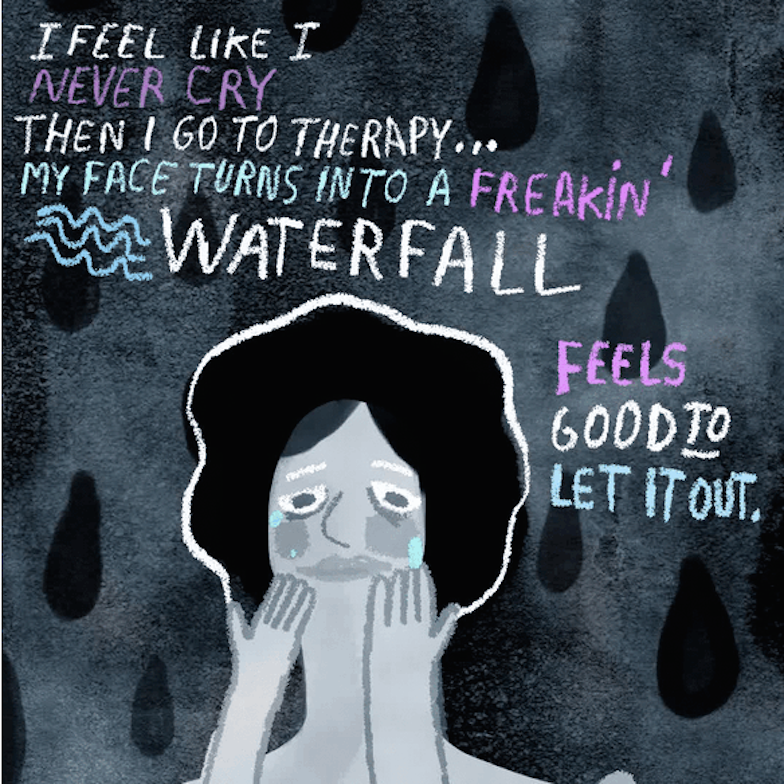
05. Reach out for help early. "I have severe and complex mental health issues; by not reaching out things were allowed to escalate. I would advise make use of the uni support systems, your GP and those around you. No one is expecting you to have it together yet. In fact there’s no shame in admitting you can’t cope". –amyy4e1823486
06. Starting uni is just really hard, and it's OK to be honest about that. "I wish someone had said that the first few weeks of uni are actually really, really hard, whether you have mental illness or not (but especially if you do). Everyone talks about how incredible Fresher’s Week is, but if you have social anxiety and you don’t know anyone there, you’ll be plunged into the socially anxious person’s wort nightmare. But you’d be amazed how many people, when you actually take the time to ask, are just as terrified as you are. Everyone finds it challenging, and there is SO MUCH help available, you just have to take it into your own hands and be brave enough to ask for it." –meganmcg998
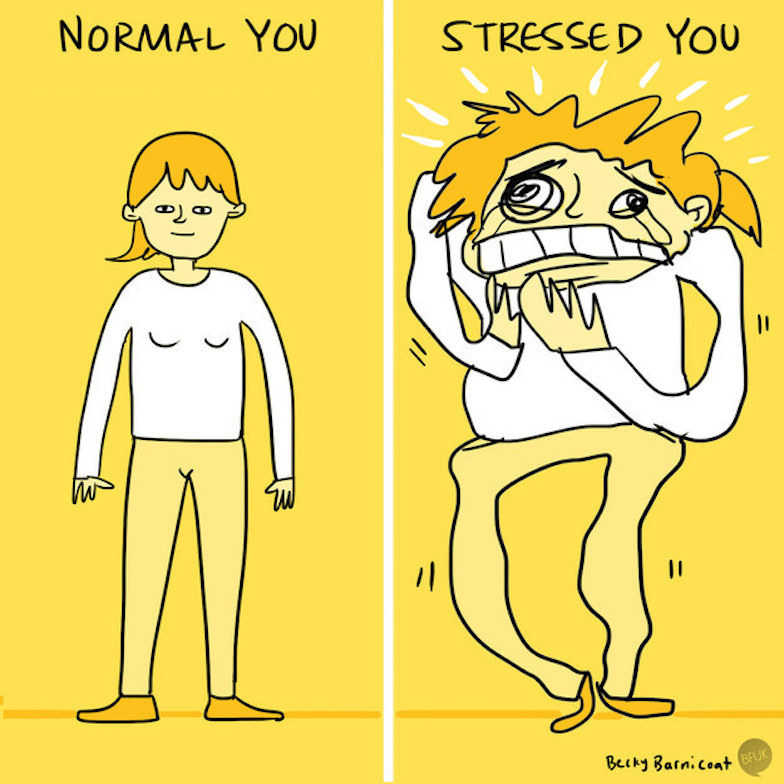
07. It's essential to keep an eye on your stress levels. "Do not leave it to the point where your only sleep is when you physically crash! I was lucky; I got physically frog-marched to the Uni doctor by my friends before I really started to seriously harm myself." –surikune
08. It's OK to accept help, even if it's not in the places that you thought you'd find it. "I made use of advice and counselling and student support in my faculty while going through depression at uni, but one of the best people I told was my manager at my student job. It was important to tell him because my behaviour was erratic, but he actually ended up being a huge part in my recovery. He helped me focus on the small victories (literally as small as pouring a good pint or making a customer laugh) and helped rebuild my confidence outside of academic grades." –Anonymous
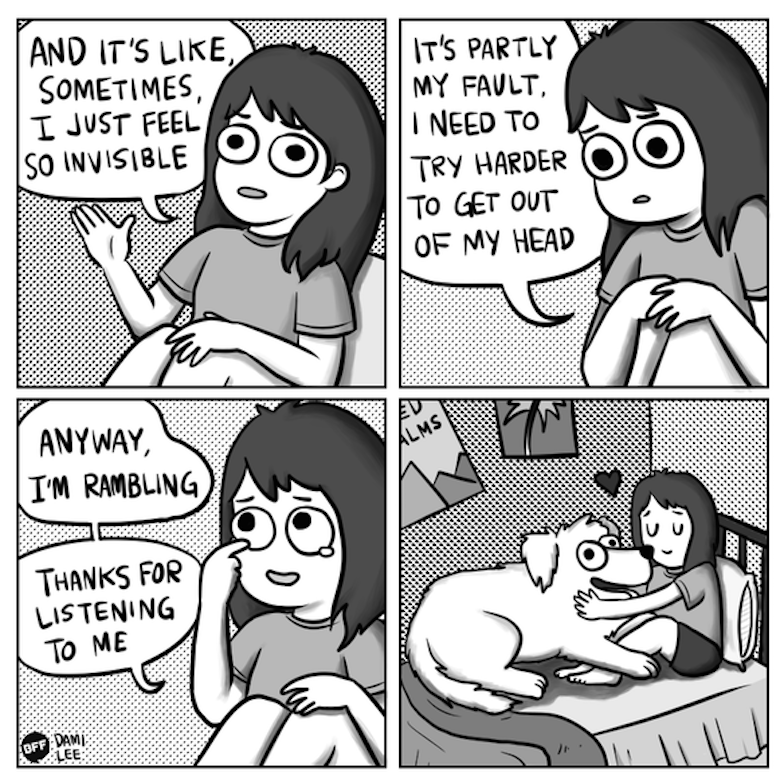
09. Know how the system works. "When you arrive at uni, even though you may not feel like you're struggling yet, go straight to the student support services, explain your situation, ask what support is available and say "can I fill in the forms for mitigating circumstances and DSA (Disabled Students Allowance) now, and if I feel I need them at a later date they're there". These things can take time, and you don't always realise you need them until it's too late." –Anonymous
10. Know what your Uni offers in terms of mental health resources. "Years after a silent struggle with depression in Uni, I went to my Uni’s website to look what might have been available to me then – and there was pretty much nothing! No counseling, no ‘we’ll help you find help’. Nothing. So future students: Look out for things like that before you choose a Uni, even if you think you won’t need it!" –arewedoneyet
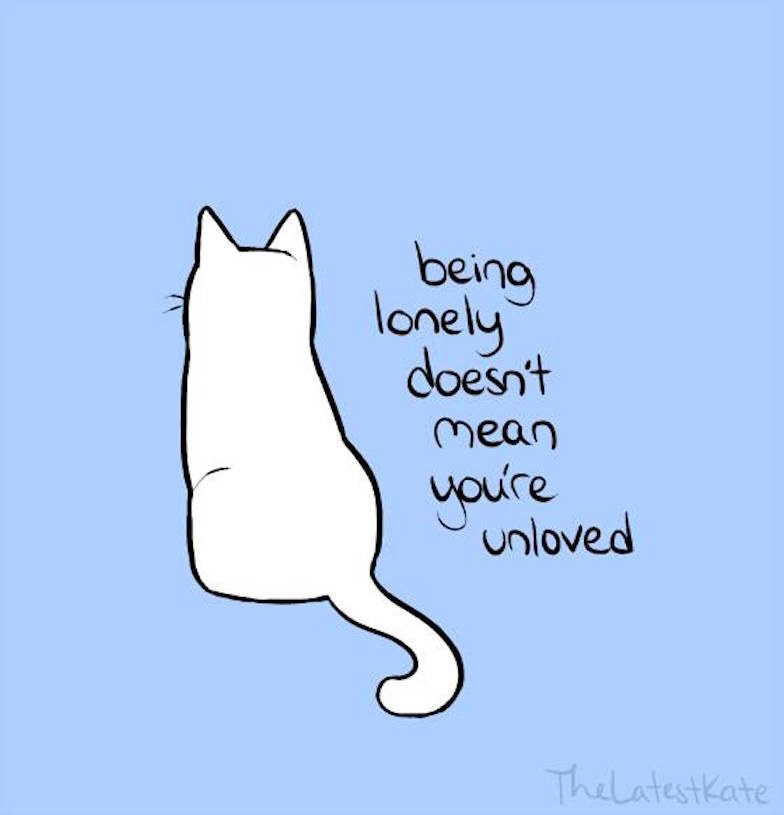
11. Don't go it alone. "The pressures of university can be huge. I wish I’d known it was OK to ask for help. I also wish I’d known how to tell my friends what I was going through. Instead I pushed them away when I needed them most." –rosamundm
12. It's OK to go at your own pace. "I wish I had people who could have told me beforehand that it might not live up to your expectations. That you could have a bad time and it wouldn’t be the end of the world if you changed your mind, took some time for yourself and gone back when you’re truly ready to face the demands of a degree." –rockyy

13. There are safety nets for when things get bad. "A mental break does not equate to an automatic fail. Mitigating Evidence is just one of your safety nets; this allows for the re-taking of parts/years of degrees without consequence." –surikune
14. Keep trying, and be kind to yourself. "This is the most important and a big life lesson for living away from home in general. Keep going, you can do it! Uni will still be there tomorrow and after an hour's distraction and self care you may feel more able to handle the world. If you need medication, that's OK. The days it doesn't work out and don't go the way you expected are fine, so long as you want to make tomorrow, next week, next year better. Mental health is a marathon, not a sprint." –Anonymous
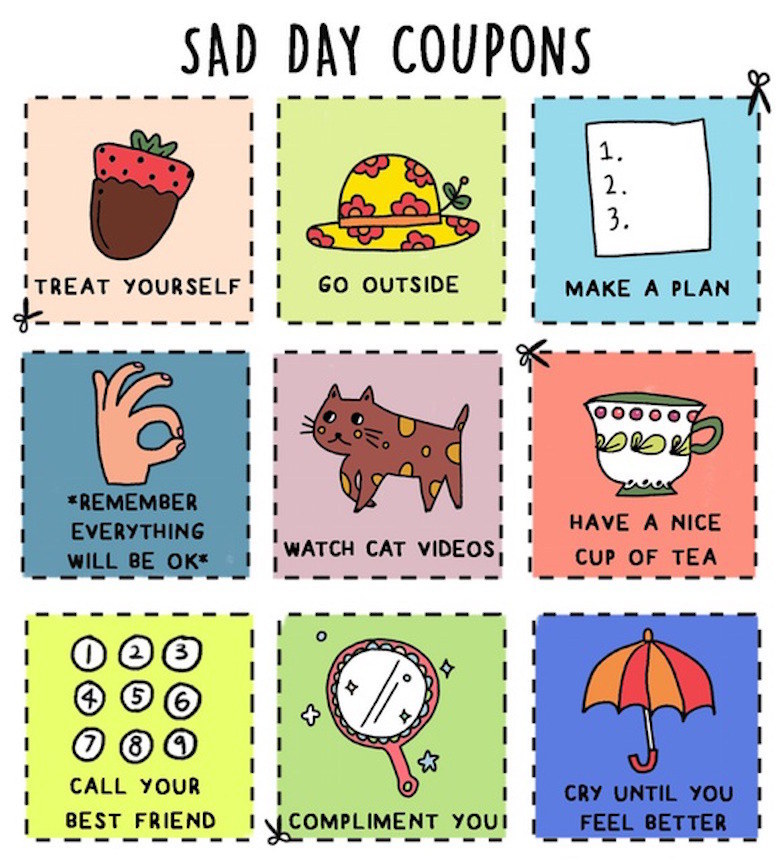
15. Don't be ashamed of what's going on with you. "I got diagnosed with depression halfway through my second year at Uni. Feeling able to talk about it and removing the stigma have been really helpful for me. Once I realised that I shouldn't be ashamed of what I was going through, I felt like I could acknowledge and confront it. I spent ages too embarrassed to admit there was something wrong and being unwilling to tell any of my friends that I wasn't OK. Probably could have coped a lot better if I'd admitted I wasn't OK." –Anonymous
16. Give yourself a chance. "My first year of university did not go well. I am very lucky and I come from an incredibly loving family so when it came to leave them and move out on my own, my incredibly high expectations were not met. I expected the people I met to be like minded and enthusiastic (basically clones of people I’d gone to school with). I found it so difficult to interact and to fit in; I was depressed and I was self-harming almost daily. Eventually I sought help, randomly passing a MIND van that visits once a term. I picked up a leaflet, as nonchalantly as I could. I went back to my room and forgot about it. It wasn’t until weeks later that seeing the leaflet actually woke me up. I thought about what I was doing, I stopped what I was about to do and read. That changed my life. I will always have the ugly scars to remind me of this time, but I’ve also kept the leaflet. Mental health services at universities are essential. I dread to think what I would have done had I not stopped by the MIND van, but I know I would not have consulted my doctor, sought counselling and I would not be making a recovery now." –annieelizabethm4ab72576b
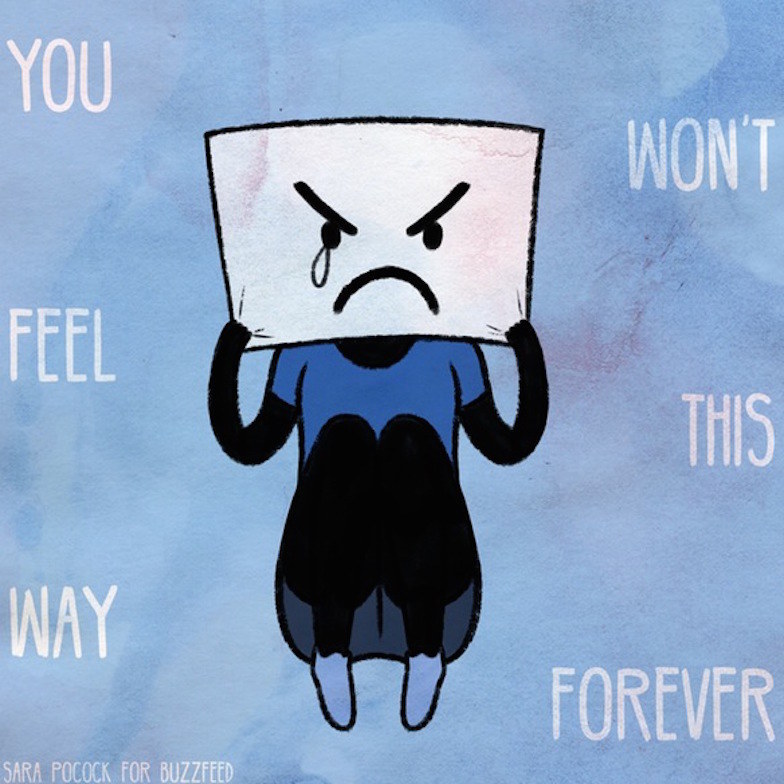
17. And seriously, talk to people about what's going on with you. "Trusted friends, co-workers, bosses, lecturers, essentially anyone you feel safe with. Even if it's just so people are aware that you may cry at the smallest of things, not want to go to all the parties, and sometimes just be alone in your room watching Netflix. And sometimes just admitting that something is wrong can work wonders to helping you start your own recovery." –Anonymous
Contributions have been edited for length and clarity.
If you need information and practical advice on depression, you can call the Rethink advice and information service on 0300 5000 927 (10am–2pm), if you’re in the UK.
You can call the Samaritans for confidential support if you’re experiencing feelings of distress or despair on 08457 90 90 90 (24-hour helpline).
And you can call the Crisis Call Center at 1-800-273-8255 at any time of the day if you’re based in the US.
